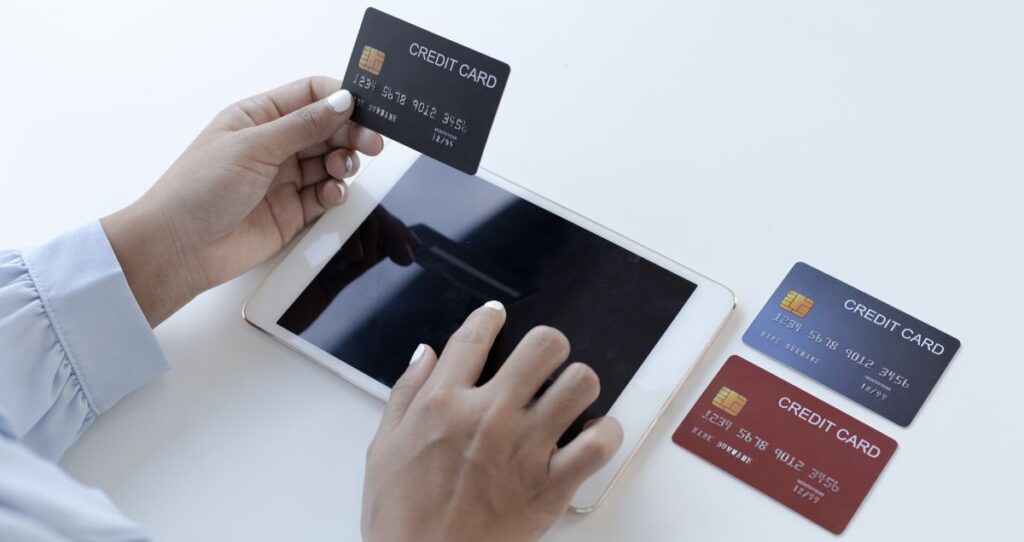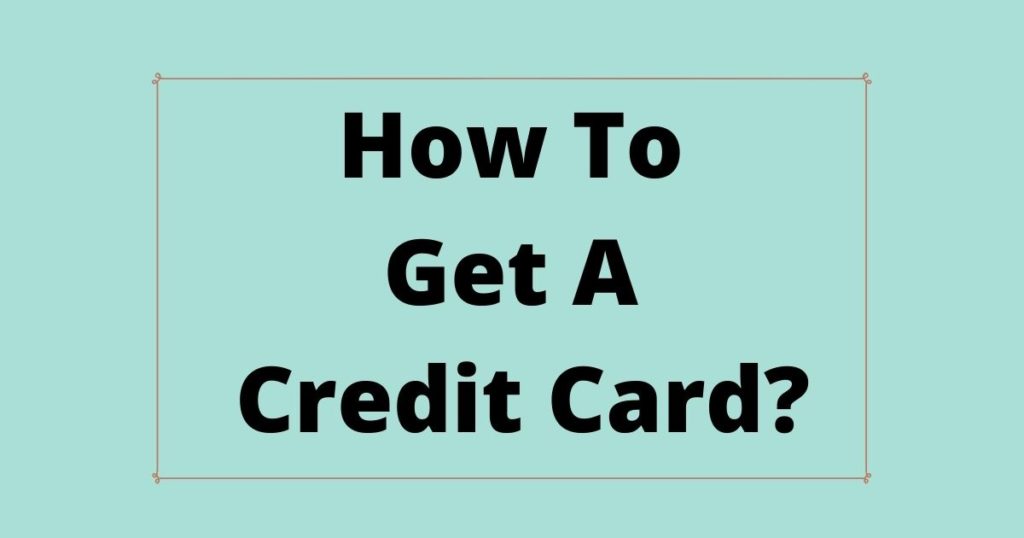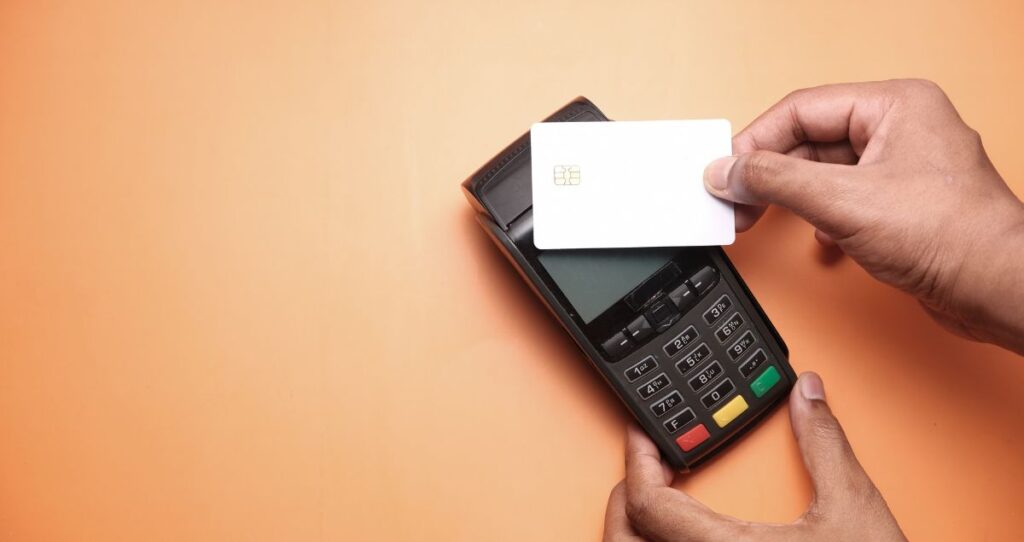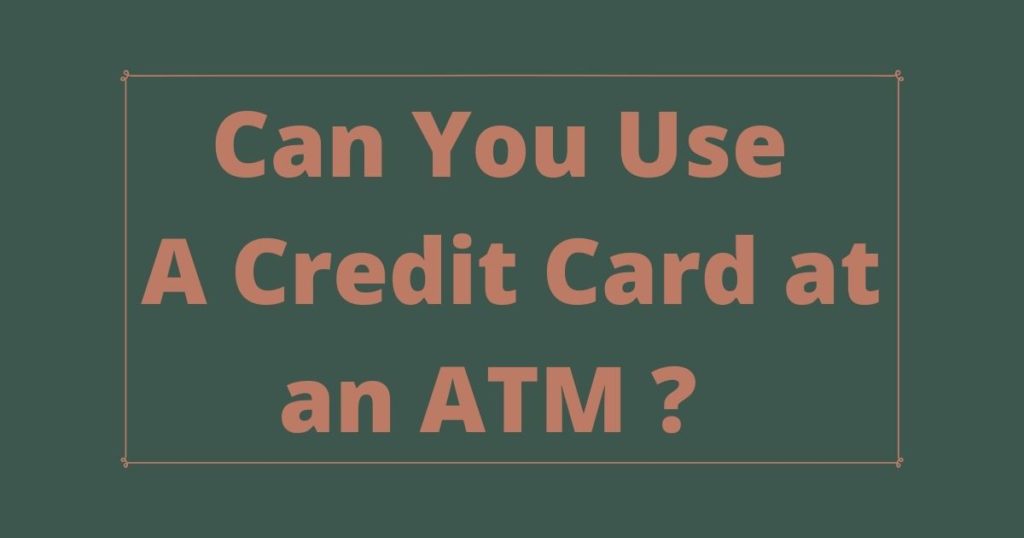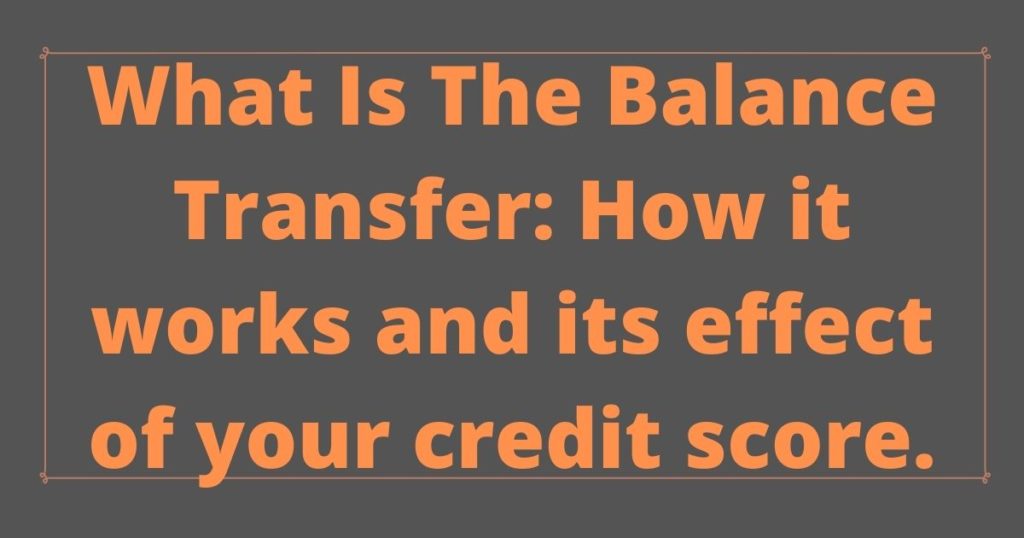While you can withdraw money from a credit card, it is not a good idea to do it due to the fees and high APR that come with this transaction. When you withdraw cash from a credit card, the card issuer charges you a cash advance fee which is usually between 3% to 8% of the total balance you withdrew. Cash advance fees apply whether you withdraw money from a credit card at an ATM, cash register, or in person at a local bank.
On top of the cash advance fee, you also pay a cash advance APR which is usually much higher than the average credit card APR. Typically, the average cash advance can range between 17.99% to 29.99%, according to Forbes. Your cash advance interest also compounds daily from the date you took cash from your credit card. Without paying off the balance on your credit card, your debt can grow quickly and become impossible to pay off. That is why it is not a good idea to withdraw money from a credit card.
Here is everything you need to know about pulling cash from a credit card.
What is a cash advance and how does it work?
The cash advance is the process of withdrawing money from a credit card. You can take out a cash advance from an ATM, a cash register, or in person at a local bank or credit union.
Withdrawing money from a credit card comes with upfront service fees. Cash advance fees are usually a flat fee or a percentage of the money you withdraw. Additionally, cash advance comes with higher interest that compounds daily from the day you withdraw cash from your credit card. You can pay as high as 30% in APR plus 3% to 8% of the balance you took from your credit card. Some credit card issuers charge a flat fee such as $12 or 5% whichever is greater.
When you withdraw money from a credit card, you technically borrow against your credit limit. That is why most credit card issuers allow you to borrow a small balance such as $200 to avoid taking out your entire credit limit and wrecking your credit score. Some credit cards do not allow cash advances. Always check the terms of your credit card before getting a cash advance.
Read more: How to get cash advance from credit card?
Example of cash advance
Let’s assume that your credit card allows you to withdraw up to $400 and it has an upfront fee of $12 or 5% whichever is greater in cash advance service and your cash advance APR is 25%.
If you decide to withdraw the whole balance, the following is what you should expect to happen after taking the money out.
Cash advance fee. 5% of $400 is $20. Since $20 is greater than $12, your upfront cash advance service fee will be $20.
Cash advance APR: Your credit card cash advance APR is 25% and the interest is compounded daily. The first day you withdraw the money from a credit card, the interest will start accruing right away. If you don’t pay it off right away, it will cost you around $100 in interest charges by the end of 12 months.
How much cash can I withdraw from a credit card?
When you withdraw money from your credit card, you typically borrow against the credit limit on your credit card. Most lenders also do not allow you to withdraw the entire credit limit to prevent you from accumulating too much credit card debt and wrecking your credit score due to a higher utilization ratio. That is why most credit card issuers allow you to withdraw a small percentage of your credit limit.
For example, if your credit limit is $3,000 and your card issuer caps the balance you can withdraw 30% of your credit limit, the maximum you will be eligible to withdraw from this credit card is $900 in cash advance.
Why is it a bad idea to withdraw money from a credit card?
While a credit card can give you access to quick cash without using collateral or waiting for days to get the money, withdrawing money from a credit card is not a good idea.
Here are a few reasons you should never withdraw cash from a credit card.
- You pay a lot of upfront cash advance service fees. When you withdraw money from a credit card you pay an upfront service fee. This fee is known as a cash advance fee and can range between 3% to 8% of the balance you withdrew. Some credit card issuers charge a flat fee usually $12 or a percentage of the balance you withdrew whichever is greater.
- Expensive APR. Withdrawing money from a credit card results in an expensive APR. Typically, the cash advance APRs are usually higher than conventional credit card APRs. Depending on your card issuer and credit profile, your credit card cash advance APR can be as high as 30%.
- The interest you pay when you withdraw money from a credit card compounds daily. Most credit card issuers do not give you a grace period after withdrawing money from a credit card. The interest usually compounds daily which makes your credit card balance harder to pay off especially when you only pay the minimum payment.
- You can easily get into credit card debt. Paying a high APR with interest that compounds daily is a recipe for financial disaster waiting to happen.
- You do not earn rewards when you withdraw money from a credit card. Even if you have a reward credit card such as cash back, mile, or points credit card, withdrawing money from a credit card will not qualify you for these rewards.
- Your credit score can go lower. Withdrawing money from your credit card can increase your credit utilization which in turn might lower your credit score.
You might also like: Should you carry a balance on your credit cards?
Pros of withdrawing money from a credit card
While it is not a good idea to withdraw money from a credit card, there are some benefits of getting cash advances from your credit card.
Here are the benefits of withdrawing money from your credit card.
- It is easy to get cash from your credit card. Most stores allow you to get cash back at the cashier register when you pay using a credit card. You can also get cash from your credit card at an ATM or by visiting a local branch of your credit card issuer.
- You get quick access to cash. Cash advance usually gives you access to quick cash. Since credit cards are a form of revolving and unsecured loans, you don’t need collateral to access the money. You also don’t need to submit a loan application since you borrow against your existing credit limit.
Alternatives to withdrawing money from a credit card
Before you get cash from a credit card, try alternative ways to get access to quick cash. Here is a list of different ways to get money fast without withdrawing cash from a credit card.
1. Get a salary in advance
If you need to get quick cash, talk to your employer and request a salary in advance. Depending on your employer, you might get 50% of your next paycheck right away.
2. Get a 401(k) loan
If you have been saving for retirement, you can borrow against your 401(k) plan. The IRS allows you to borrow up to 50% of your vested 401(k) balance or $50,000 whichever is lower. 401(k) loans are fast and easy to qualify. To get started with 401(k) loans, talk to your HR or plan administrator.
You might also like: What happens when you default on a 401(k) loan?
3. Get a secured loan
If you are not in a hurry, get a secured loan. The term “secured” means you will need to provide collateral which will be liquidated in case you default on your loan.
4. Get a personal loan
Taking out a personal loan is another way to get quick access to cash without withdrawing money from a credit card. Most personal loans can approved between $1,000 to $50,000. If you have an excellent credit score you can qualify for as much as $100,000.
Read more: How much can I borrow with a personal loan?
5. Borrow from your friends
It is easier and cheaper to borrow from friends than to withdraw money from a credit card.
You might also like: 7 reasons you should never lend money to a friend
6. Withdraw money from your Roth IRA
If you have a Roth IRA, take out a distribution. Your contribution to a Roth IRA can be taken out at any time tax-free. But, if you are not 59½ and the account is not 5 years old, you might pay a 10% penalty on earnings associated with the balance you withdrew.
Does withdrawing money from a credit card hurt your credit score?
The cash advance transaction will not show up on your credit report as a separate transaction. But, if the money you withdraw from your credit card leads to an increase in credit utilization, your credit score might go lower. Credit utilization is the percentage of your credit card balance to your credit limit. Your credit score goes lower as the credit utilization goes higher.
You might also like: Why does your credit score go down when you pay off a loan?
How to get cash from a credit card without a cash advance?
If you withdraw money from a credit card, you will more likely pay a cash advance fee and a higher APR. But, there is a way to get cash from your credit card without cash an advance or paying expensive APR.
To get cash from your credit card without getting a cash advance, buy a prepaid gift card and use it to cover your purchase. If you still need liquid cash from our prepaid gift card, give the card to our friend in exchange for cash.
More credit card tips
Cash back vs. points and miles: Which one is best for you?
